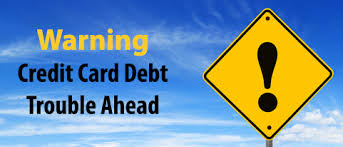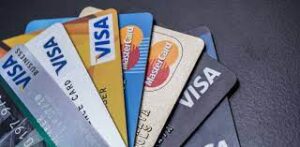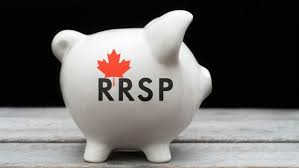 Many of us are all too familiar with the weight of credit card debt. American families owe an average of $9,600 on their credit cards, which equates to around 17 percent of the average U.S. household income. Considering today’s steep interest rates and the growing number of Americans with poor credit, we can expect to see this debt grow by thousands each year.
Many of us are all too familiar with the weight of credit card debt. American families owe an average of $9,600 on their credit cards, which equates to around 17 percent of the average U.S. household income. Considering today’s steep interest rates and the growing number of Americans with poor credit, we can expect to see this debt grow by thousands each year.
With Americans owing a record high of more than $1 trillion in credit card debt, many are struggling to get themselves out of the red. Those that are unable or unwilling to pay off student loans, medical bills, auto debts and more may have their wages garnished, their belongings repossessed, or suffer devastating blows to their credit score.
This can be a particular problem for those who are looking to take out a business loan for a start-up venture, of which there are around 452,000 each year in the US. Keeping your finances healthy on a personal level is essential for the future good of any small business that you wish to start. The easiest way to keep your credit lines looking healthy is to avoid going into debt in the first place. It may seem obvious, but these days, staying out of debt is no easy feat for most families. Here are some tips on how to control your spending habits and avoid credit card debt.
Keep Track of Income and Expenditures
The first step to financial success is diligence. To prevent credit card debt, you first need to know how much you’re spending. You can figure out how much you owe by adding up credit card and loan statements. Be sure to note the annual percentage rate (APR), which may be variable for credit cards.
You should also be aware of how much money you have coming into your account each month. Keep track of all pay stubs and other income documentation to determine how much you have available to spend in a month.
Know your Total Monthly Household Expenses
Obviously, not every penny you make is going to go towards paying off debts. You need to budget for essentials such as food, clothing, and utilities each month. You should keep track of all your monthly household expenses and stick to a strict budget so that you don’t end up spending beyond your means. Only buy what you can afford, especially when using your credit card.
When budgeting, be sure to set aside some money each month for your savings account. Nothing can push a family deep into debt faster than an expensive emergency. A healthy savings account can protect you from having to rely on lines of credit in the event of a medical or financial crisis.
Don’t Miss Payments
It’s important that you pay your credit card balance in full each month to eliminate the risk of entering into debt. Too many people who fall into the trap of missing a payment end up spiraling into a financial rabbit hole that they can’t dig their way out of. A missed credit card payment means that subsequent bills will be higher and include late fees.
If you don’t have enough money to cover all of your bills one month, credit card debt and small loans should be paid off before low-rate student loans and home loans. Credit accounts often have higher interest rates and can adversely affect your credit score if you miss any payments, which in turn can affect your ability to rent a car, buy a house, or even land a job.




No Comments